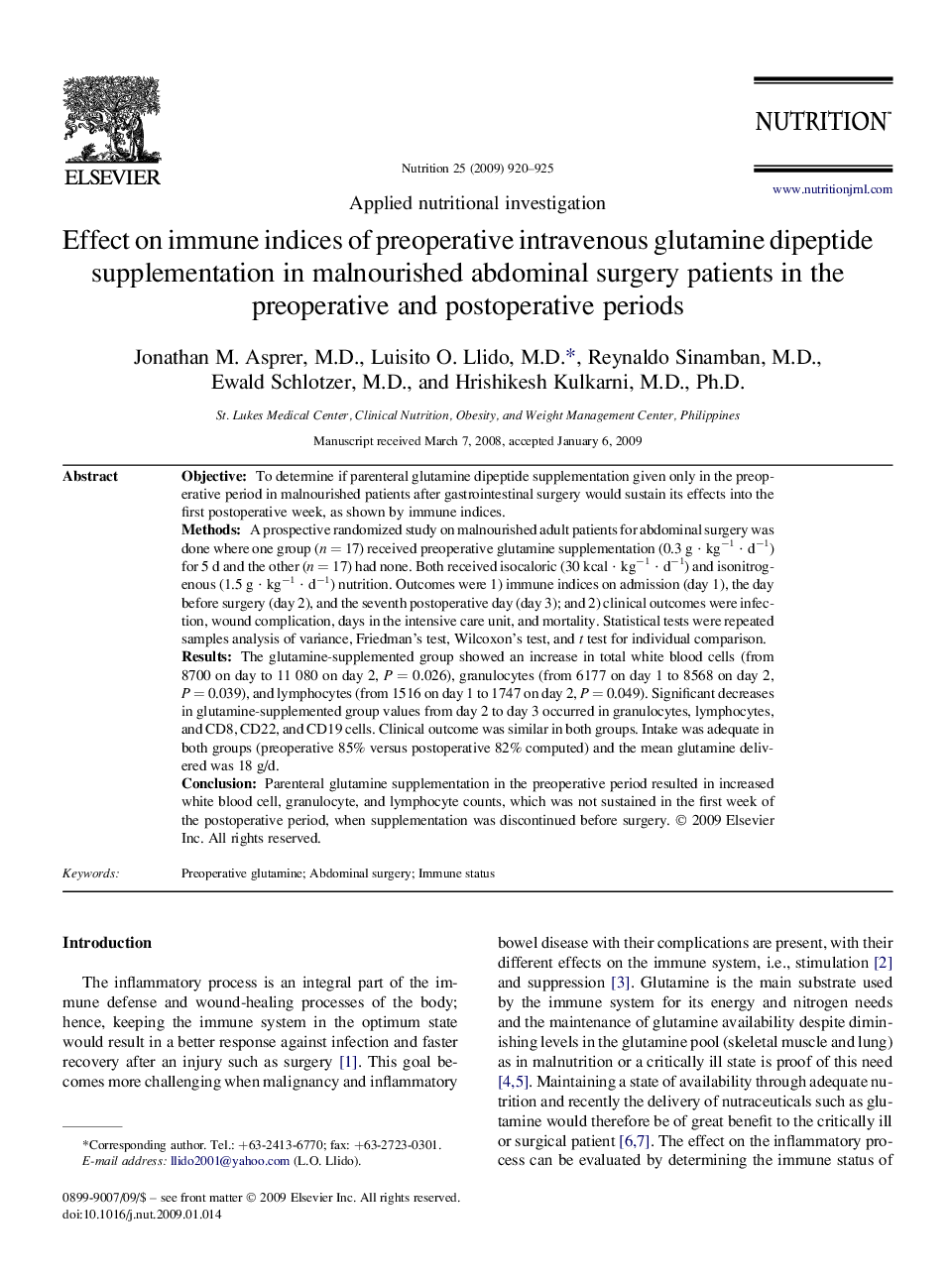| Article ID | Journal | Published Year | Pages | File Type |
|---|---|---|---|---|
| 3276857 | Nutrition | 2009 | 6 Pages |
ObjectiveTo determine if parenteral glutamine dipeptide supplementation given only in the preoperative period in malnourished patients after gastrointestinal surgery would sustain its effects into the first postoperative week, as shown by immune indices.MethodsA prospective randomized study on malnourished adult patients for abdominal surgery was done where one group (n = 17) received preoperative glutamine supplementation (0.3 g · kg−1 · d−1) for 5 d and the other (n = 17) had none. Both received isocaloric (30 kcal · kg−1 · d−1) and isonitrogenous (1.5 g · kg−1 · d−1) nutrition. Outcomes were 1) immune indices on admission (day 1), the day before surgery (day 2), and the seventh postoperative day (day 3); and 2) clinical outcomes were infection, wound complication, days in the intensive care unit, and mortality. Statistical tests were repeated samples analysis of variance, Friedman's test, Wilcoxon's test, and t test for individual comparison.ResultsThe glutamine-supplemented group showed an increase in total white blood cells (from 8700 on day to 11 080 on day 2, P = 0.026), granulocytes (from 6177 on day 1 to 8568 on day 2, P = 0.039), and lymphocytes (from 1516 on day 1 to 1747 on day 2, P = 0.049). Significant decreases in glutamine-supplemented group values from day 2 to day 3 occurred in granulocytes, lymphocytes, and CD8, CD22, and CD19 cells. Clinical outcome was similar in both groups. Intake was adequate in both groups (preoperative 85% versus postoperative 82% computed) and the mean glutamine delivered was 18 g/d.ConclusionParenteral glutamine supplementation in the preoperative period resulted in increased white blood cell, granulocyte, and lymphocyte counts, which was not sustained in the first week of the postoperative period, when supplementation was discontinued before surgery.
